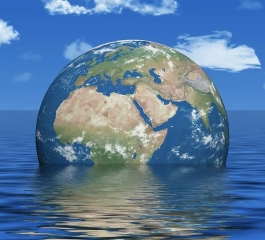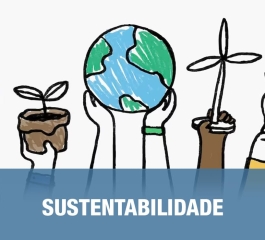Throughout this text, we will answer these questions and provide clarification on the concept of the environment. If you want to delve deeper into this subject, continue reading until the end. So, let’s go?
What is the environment and what makes it up?
Natural resources and conditions surround and influence living things and their interactions.
They are responsible for forming the environment, which comprises all the physical, biological and social components of the environment in which we live. Nature is a complex network of factors that include:
Physical components: Non-living elements such as air, water, soil, rocks, climate and relief make up the physical component of the environment.
They are the basis of life and essential for the survival of all living beings.
Social components:Human activities in the environment generate interactions and impacts that form the social component of the environment.
This includes culture, economics, industrial activities, urbanization and individual behaviors that can positively or negatively influence the environment.
Biological components: All biodiversity, that is, the various forms of life present on Earth, such as animals, plants, fungi, bacteria and other microorganisms, form the biological component of the environment.< /p>
Biodiversity is essential for maintaining the balance of ecosystems and sustaining life.
In general, the environment is an interconnected system, where all parts are interdependent and interact with each other.
How to preserve the environment?
To preserve the environment properly, we need to adopt sustainable practices in all spheres of our lives. Some important steps we can take are:
Investing in renewable energy sources, promoting energy efficiency and reducing the use of fossil fuels help to lessen the impact of climate change.
Recycling and reducing the consumption of disposable products help to reduce the amount of solid waste and environmental pollution.
Making the population aware of the importance of preserving the environment, its consequences and individual actions that can make a difference is essential to engage more people in this cause.
Implementing conservation policies and protection programs for endangered species is important to preserve biodiversity.
Encouraging the use of public transport, bicycles and electric vehicles contributes to the reduction of pollutant emissions.
Preserving the environment is everyone’s shared responsibility, and small individual actions can make a big difference when added together.
Importance of recycling
Recycling plays a crucial role in preserving the environment and thus promoting sustainability. Its importance is related to the various benefits it provides. Check out the importance of recycling below:
1- By recycling materials such as paper, plastic, glass and metal, this waste is prevented from being disposed of in landfills or in the natural environment, reducing soil, water and air pollution.
2 – Recycling is part of the circular economy concept, in which materials are reused and reintroduced into the production cycle, minimizing waste and promoting sustainability.
3 – Recycling generally consumes less energy than producing new materials, which contributes to saving energy resources.
4- Recycling makes it possible to reuse existing materials, reducing the need to extract natural resources such as trees, minerals and oil, contributing to the conservation of the environment.
5 – By avoiding the production of new materials from virgin resources, recycling reduces greenhouse gas emissions associated with extraction, transportation and manufacturing processes.
In short, recycling is one of the main tools to address environmental challenges and promote sustainability.
Conclusion
In short, preserving the environment is critical to the well-being of current and future generations.
Recycling plays an essential role in this process, as it helps to reduce pollution, save natural resources, decrease greenhouse gas emissions and promote the circular economy.
Sustainable practices such as renewable energy, the reduction of disposable products, public awareness and conservation policies are essential to protect the environment.
Therefore, preserving the environment is a responsibility shared by all, and recycling is one of the main tools to achieve this goal and ensure a healthier and more sustainable future.




